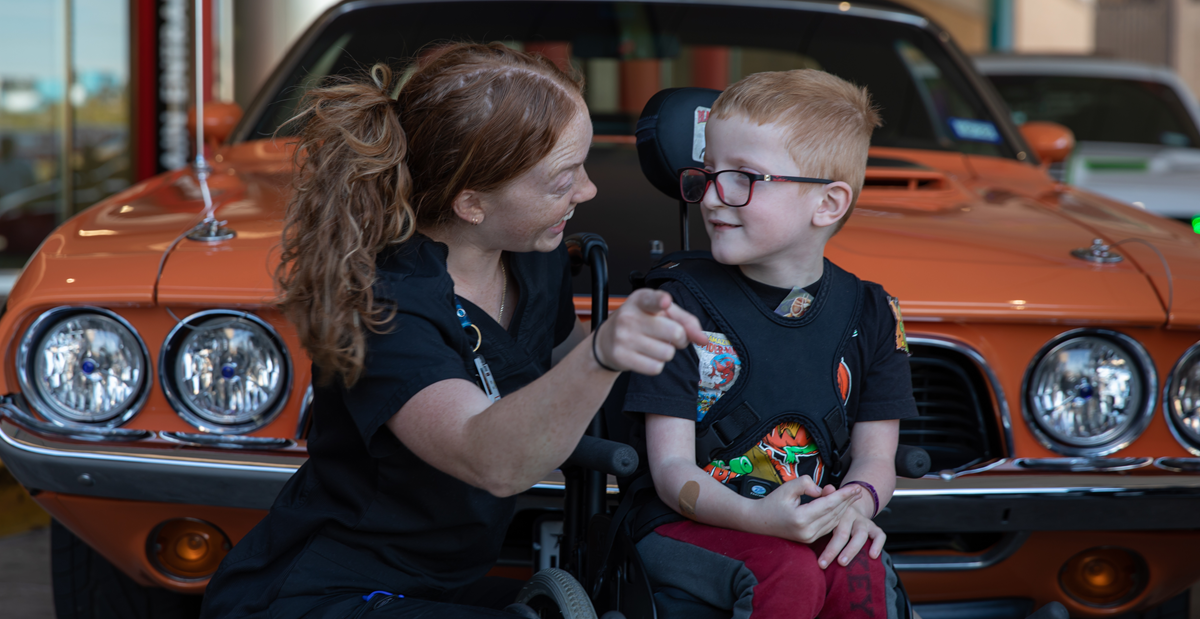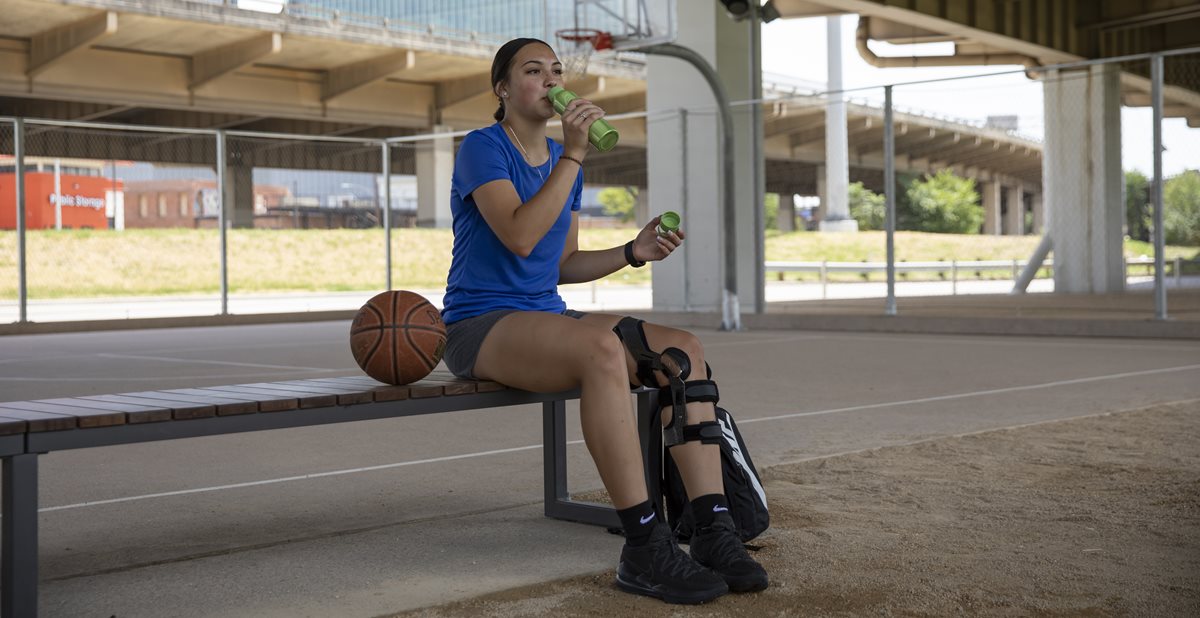
Mar 17, 2023 / Neurology
Cerebral Palsy Clinic: Your Child's Care and What To Expect
At Scottish Rite for Children, our experts provide care to the whole child – body, mind and spirit. The Neurology and Rehabilitation Medicine department sees children with orthopedic issues who also have related neurological disorders and neuromuscular diseases. One of the most common conditions seen by this team is cerebral palsy (CP).
Like all conditions, the severity of cerebral palsy can vary depending on the child and requires a multidisciplinary team to determine the best treatment options. With several factors that play into this diagnosis, we understand that as a parent or caregiver it can be challenging to navigate through the care plan for a child with cerebral palsy. Below is what you need to know about our specialized cerebral palsy clinic at Scottish Rite.
Who is part of the CP team?
Learn more about the Neurology and Rehabilitation Medicine department.
Like all conditions, the severity of cerebral palsy can vary depending on the child and requires a multidisciplinary team to determine the best treatment options. With several factors that play into this diagnosis, we understand that as a parent or caregiver it can be challenging to navigate through the care plan for a child with cerebral palsy. Below is what you need to know about our specialized cerebral palsy clinic at Scottish Rite.
Who is part of the CP team?
- Orthopedic Surgery
- A pediatric orthopedic surgeon focuses on evaluating and monitoring for operative interventions to address function and pain.
- Pediatric Rehabilitation Medicine (PRM)
- PRM focuses on evaluating and monitoring the child for nonoperative interventions, including bracing, casting, tone medications, botulinum injections, equipment and therapies with the goal of optimizing function and reducing pain.
- Neurology
- This team treats the active neurological conditions such as seizures.
- Advanced practice providers (APP)
- The APPs work with both the neurologists and pediatric rehabilitation specialists to provide holistic care.
- Nursing
- This team coordinates and organizes each of the multidisciplinary teams and ensures that education is tailored to the needs of each patient.
- Orthotics
- A team of orthotists work with the teams to evaluate, fit and fabricate braces used to help your child’s mobility.
- Physical Therapy (PT)
- PT works with the child to improve functional mobility, with or without their needed equipment.
- Occupational Therapy (OT)
- OT focuses on activities of daily living, upper extremity function and the use of equipment needed to help your child function.
- Therapeutic Recreation (TR)
- TR works with the patient to promote activities and participation through peer interactions and relationships, such as adaptive sports, games and more.
- Psychology
- Our team of pediatric psychologists manage the psychological well-being of the child and helps them with strategies to overcome barriers to the treatment plan.
- Developmental and Behavioral Pediatrics
- This team optimizes nutrition, feeding and medical comorbidities and manages behavioral differences.
- The child will first be seen by our motor control nurse who will go over medications and safety questions.
- One of the neurology/rehabilitation medicine APPs will continue the visit.
- A video recording will be conducted of the child for their gait to be analyzed so the team can compare changes that occur throughout time.
- The pediatric rehabilitation medicine specialist and the APPs will then complete the visit and explain the plan to the patient and parent/caregiver.
- Depending on the clinic and specific needs, the patient may also be seen by a pediatric orthopedic surgeon, orthotist, physical and/or occupational therapist, pediatric psychologist or a recreational therapist. When appropriate, referrals are also made to the other cerebral palsy experts.
- Children younger than 5 are typically seen every three to four months. Since this is a period of rapid growth and development, our team of experts want to make sure that they are monitoring the patient’s growth closely and intervening in any way needed to promote healthy and happy development.
- Children between ages 6 to 12 are seen about every six months but may require visits more often if they are in the middle of a growth spurt.
- After a child has completed their growth spurt, the team typically sees them between every six months to a year.
Learn more about the Neurology and Rehabilitation Medicine department.



